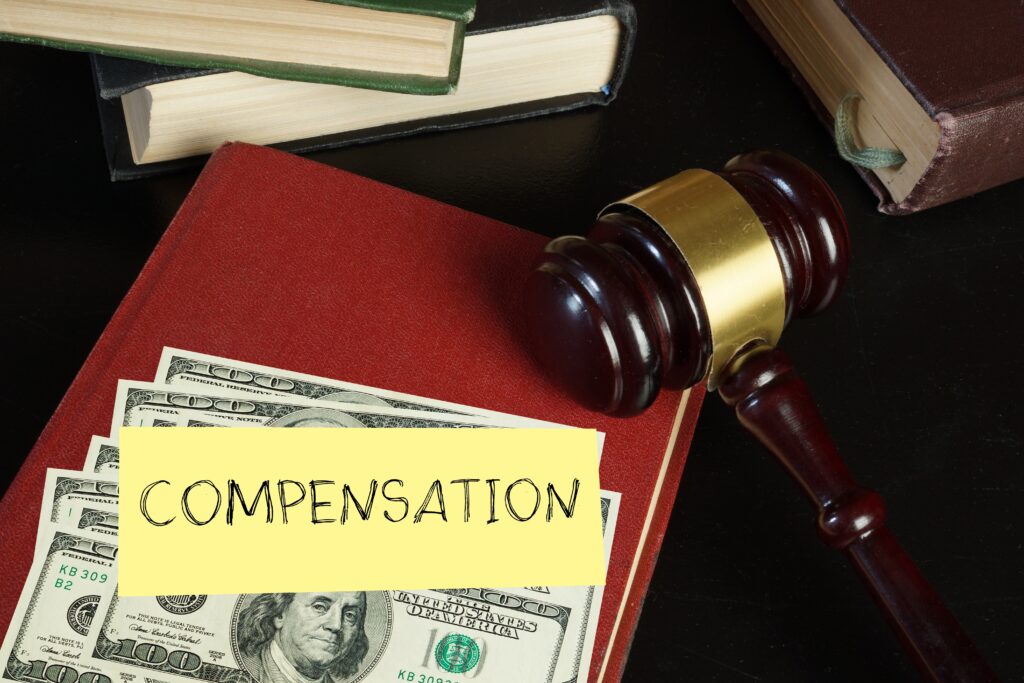If you were injured in a semi-truck crash, your steps after seeking medical attention can safeguard your legal options. Since an accident involving a commercial truck is far more complex than a typical car crash, contacting a Texas truck accident lawyer is the best thing you can do to protect your rights.
The trucking company and its insurance carrier have a rapid response team that starts building a case against you the moment the accident happens. You need a team on your side to balance things out. The trucking company is counting on you to be confused and unaware of your rights.
6 Steps To Take After a Semi-Truck Wreck
Once a physician has examined your health, it’s time to start thinking about your personal injury case. Be proactive and take control of your future with these six steps.
1. Prioritize All Medical Follow-Ups

Your health is the priority. Attend all follow-up appointments with doctors, specialists, and physical therapists. Fill all prescriptions and follow the treatment plan exactly as your medical providers outline.
This not only aids in your recovery but also creates an official record documenting the extent of your injuries and the care required.
2. Obtain the Official Crash Report
The piece of paper you received from the officer at the scene is likely just an exchange form. The full, official police report contains more detail, including the officer’s notes, diagrams, and witness information.
Obtain a copy of this full report from the responding law enforcement agency, such as the local police department or the Texas Department of Public Safety. You can also order a report online.
3. Document Your Experience and Injuries
Memories fade, especially after a traumatic event. Write down everything you remember about the accident as soon as you can. Include details about the weather, traffic, and exactly what happened.
Also, keep a daily journal to document your pain levels, physical limitations, and how the injuries affect your daily life. Take photos of your injuries as they heal to document your recovery process.
4. Create a File for All Crash-Related Expenses
Get a folder or box and keep every single bill, receipt, and document related to the semi-truck crash. This file is the proof of your financial losses.
Collect items like:
- All Medical Bills: This includes hospital stays, doctor visits, ambulance transport, and physical therapy.
- Pharmacy Receipts: Keep track of all prescription and over-the-counter medical supplies.
- Proof of Lost Income: Gather pay stubs to show the wages you have lost while being out of work.
5. Limit Your Communications and Social Media Activity
Don’t speak with the trucking company's insurance adjuster until you’ve had a chance to discuss your case with a personal injury lawyer. You have no obligation to provide them with a recorded statement.
Also, stay off social media or set all your profiles to private. Insurance companies will search your accounts for photos or posts they can twist to argue that your injuries are not as severe as you claim. Even innocent photos or posts can hurt your claim.
6. Contact a Semi-Truck Accident Lawyer
A collision with a commercial truck is a complex legal fight that you don’t have to face alone. Contacting a personal injury law firm that handles these specific cases puts a team of professionals on your side.
Your semi-truck accident lawyer will act as your voice and shield. They offer guidance throughout the complex claims process and handle the legal process so you can focus on your recovery.
Why a Semi-Truck Crash Is Different
Collisions with 18-wheelers, tractor-trailers, and other large commercial vehicles are not just bigger car accidents. They’re fundamentally different.
The immense size and weight of a semi-truck mean injuries are often catastrophic, and the laws governing the trucking industry add layers of complexity to any claim.
Trucking companies are businesses protected by powerful insurance carriers and aggressive legal teams. They’re not just concerned with a single accident but protecting a nationwide operation. From the moment a crash occurs, their priority is to limit their financial liability.
Federal and State Trucking Regulations
Truck drivers and trucking companies must follow a strict set of rules from the Federal Motor Carrier Safety Administration (FMCSA) as well as Texas state laws. These regulations govern nearly every aspect of the trucking industry. The rules cover things like:
- Hours of Service: To prevent fatigued driving, limits are placed on the number of consecutive hours a driver is allowed to be on the road.
- Maintenance and Inspections: Trucks must be regularly inspected and maintained to keep them in safe working order.
- Hiring and Training: Trucking companies must hire qualified drivers and provide proper training.
Violating any of these regulations is often a key piece of evidence proving the trucking company was negligent. An attorney knows exactly what to look for in company records to find these violations.
Who Is Responsible for a Semi-Truck Crash?
Identifying all the potentially responsible parties is one of the biggest complexities in a semi-truck crash. Unlike a car wreck, where you typically only file a claim against the other driver, a truck accident may involve multiple defendants.
Your claim may involve several individuals or corporate entities. Each may have its own insurance policy available for recovery.
The Driver

The truck driver is the most obvious party. If the driver was speeding, distracted, intoxicated, or otherwise driving negligently, they’re liable for the harm they caused. Their actions are the starting point for any investigation.
The Trucking Company
In almost all cases, the trucking company that employs the driver is also responsible. A trucking company is also directly negligent if it fails to properly train the driver, encourages drivers to violate hours-of-service rules, or fails to perform background checks.
Other Potential Parties
The web of responsibility in the trucking industry is vast. Depending on the facts of the crash, several other entities may also be at fault.
Examples include:
- Maintenance Company: If a third-party company was responsible for inspecting and repairing the truck and failed to fix a dangerous defect, like bad brakes, it shares the blame.
- Cargo Shipper or Loader: A company that improperly loads or secures cargo is liable if that cargo shifts and causes the driver to lose control of the truck.
- Truck or Parts Manufacturer: If the crash was caused by a defective part, like a faulty tire or a steering system failure, the manufacturer of that part is held responsible.
How a Personal Injury Lawyer Helps After a Semi-Truck Crash
The trucking company has a team of professionals working to protect its interests. A personal injury lawyer provides the resources, knowledge, and aggressive representation you need to fight back.
Collecting and Preserving Evidence
A truck accident lawyer knows the clock is ticking, so they immediately send spoliation letters to prevent critical evidence from being destroyed.
This evidence includes:
- Electronic Data: The truck’s electronic logging device (black box) contains vital information about the truck's speed, braking, and hours of operation just before the impact.
- Driver Qualification File: This file contains the driver's employment history, training records, driving record, and drug and alcohol test results.
- Maintenance and Inspection Records: These documents show if the truck and its parts, like tires and brakes, were maintained correctly or if the company allowed a dangerous vehicle on the road.
Your lawyer may also hire investigators and reconstruction professionals to document the scene and analyze the physics of the crash before the evidence disappears.
Identifying All Responsible Parties
Your lawyer’s investigation will identify every single person or company whose negligence contributed to your injuries. Pursuing claims against all responsible parties maximizes your opportunity to recover the full amount of compensation needed for your lifelong care.
Identifying these parties is complex and requires deep knowledge of the trucking industry.
Handling All Communication
Your legal team oversees all communication with the trucking companies, insurance adjusters, and lawyers. This protects you from the stress of these interactions and prevents you from being tricked into saying something that harms your case.
Fighting for Maximum Compensation

A lawyer calculates the full and fair value of your claim and then fights for every penny of it. They work with medical and financial professionals to understand the total impact of your injuries, including future medical treatments, lost earning capacity, and long-term pain and suffering.
Your attorney negotiates with the insurance company and can counter lowball offers with a clear presentation of the facts.
If the trucking company and its insurer refuse to offer a fair settlement, your lawyer can take them to court.
FAQ for What Should I Do If I Was Injured in a Semi-Truck Crash?
How Is a Claim Against a Trucking Company Different From a Car Accident Claim?
A claim against a trucking company is more complex due to federal regulations, the number of potentially liable parties, and the severity of the injuries. Your lawyer must navigate both state and federal laws, investigate corporate negligence, and fight a well-funded legal team.
A typical car accident claim usually only involves one at-fault driver and state traffic laws.
How Long Will My Truck Accident Case Take?
There is no average timeline for a truck accident case because each is unique. Depending on several factors, a case may resolve in several months or take a few years.
These factors include the severity of your injuries, the complexity of the investigation, and whether the trucking company's insurer negotiates fairly or forces the case to go to trial.
While a quick resolution may seem appealing, it often means accepting a low settlement. A thorough legal process takes time because it involves gathering extensive evidence and accurately calculating the full value of your lifelong needs.
Who Pays for My Medical Bills While My Case Is Ongoing?
Initially, you will use your own health insurance, Personal Injury Protection (PIP), or Med-Pay coverage from your auto insurance policy to pay for your medical bills.
If you don't have insurance, your lawyer may be able to help you find medical providers who agree to treat you under a letter of protection. A letter of protection promises that their bills will be paid from your eventual settlement or verdict.
Should I Accept the First Settlement Offer From the Trucking Company?
No, you shouldn’t accept a quick settlement offer. Early offers from insurance companies are almost always for an amount far less than your claim's true value.
Insurers make these quick offers, hoping you’re desperate for help and don't yet understand the full extent of your injuries or the total cost of your future medical needs.
What if I Was Partially at Fault for the Semi-Truck Crash?
Even if you think you may share some of the blame, you should still speak with an attorney. You can still recover damages in Texas if you’re not 51% or more at fault. Trucking companies often try to shift blame to victims, and an attorney will fight to protect you from unfair allegations of fault.
Fight Back With DFW Injury Lawyers
You need an aggressive advocate in your corner who isn’t afraid to take on corporate giants and fight for your future. At DFW Injury Lawyers, our Texas personal injury lawyer team knows insurers' tactics and how to beat them. We prepare every truck accident case for trial from day one, sending a clear message that we won’t back down.
Let us handle the fight so you can focus on healing. Call us 24/7 at (972) 440-2320 for a free and confidential consultation.